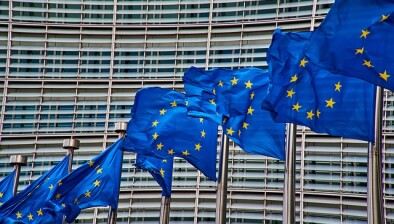Eoin Jackson: Why Ireland must withdraw from the Energy Charter Treaty

Eoin Jackson
Ireland must withdraw from the discredited Energy Charter Treaty, argues Eoin Jackson.
In February 2023, a leaked communication from the European Commission signalled that a collective EU withdrawal from the Energy Charter Treaty (ECT) appeared “unavoidable”. This follows on from announcements from France, Germany, the Netherlands and Spain confirming their intention to withdraw from the controversial treaty.
Ireland is also a signatory to the ECT, yet thus far has not made any moves to initiate a withdrawal. However, Ireland must take action now and withdraw from the treaty to prevent it becoming entangled in investor-state dispute settlement (ISDS) proceedings that could have disastrous consequences for climate action.
Background to the ECT
The ECT is a multilateral investment treaty signed in the 1990s to provide investment protections across Europe. One key aspect of the ECT is that it allows energy companies to pursue ISDS in the event that a change in state policy leads to an alleged breach of the treaty.
The ISDS provisions of the ECT have become increasingly problematic for European states as the EU has sought to detach itself from a dependency on fossil fuels in accordance with the Paris Agreement. The policies involved with the green energy transition have led to fossil fuel companies using the ECT to sue or threaten to sue member states, and led to millions being awarded in compensation.
The result has been a host of shocking victories for fossil fuel companies. Italy was forced to pay almost €240 million in compensation to a UK oil company following its decision to ban offshore oil drilling. German company RWE has filed a suit asking for €1.4 billion in compensation from the Netherlands in response to the country’s decision to phase out coal by 2030, while fracking company Ascent Resources is demanding €500 million from Slovenia after the country opted to ban the practice.
All of these cases have or will be taken before ISDS tribunals that exist outside the scope of ordinary domestic law and do not have the same capacity for appeal as ordinary litigation would. A recent attempt by the Court of Justice of the European Union to ban intra-EU ISDS proceedings has merely led to companies using the New York Convention (which governs the enforcement of international arbitration awards) to seek enforcement of their winnings in non-EU courts. Even where these cases do not succeed, the threat of ISDS and the associated time and cost of the proceedings can influence the extent to which governments are willing to commit to climate action.
In other words, a series of private tribunals are determining the extent to which the state will be forced to pay out compensation for climate decisions that are necessary to comply with the Paris Agreement. There is minimal recourse to appeal and the tribunals are not subject to the same safeguards and proceedings that would be in place in an Irish or EU court. As Ireland and other EU states seek to further regulate fossil fuels and incentivize renewable energy investment, the ECT could become a serious thorn in the side of any climate policy designed to meet the country’s legally binding net zero targets.
Ireland and the ECT
According to research from Investigation Europe, Ireland has approximately €1.1 billion of fossil fuel investments protected by the ECT. This puts Ireland at risk from potential arbitration claims as the state attempts to fulfil its legal climate obligation. Environment minister Eamon Ryan has indicated that “if a decision is made for a coordinated exit of EU member states from the Treaty, Ireland will support that position” but the government has not stated whether it would be willing to take the lead and unilaterally withdraw from the ECT in the same way that other EU member states have.
While the EU is likely to leave as a bloc, no timeline has been provided for when this may occur nor has there been an official indication that the European Commission will begin withdrawal proceedings. Hesitancy from the government to take the lead places Ireland on a crash course with future ISDS arbitration, which could result in the state either being tied up in legal proceedings as the energy transition commences, or being overly cautious in its approach to the fossil fuel sector for fear of the consequences. The longer Ireland stays in the treaty, the greater the likelihood that it will face similar proceedings to those already taking place in mainland Europe.
Withdrawal
In withdrawing from the ECT, Ireland would recognise the problems that the treaty poses for climate action. It will signal to states and investors that it does not intend to be threatened with unjustifiable arbitration claims while bolstering the efforts of its neighbours to neutralise the climate unfriendly nature of the treaty.
Withdrawal from another EU member state would also place further pressure on the European Commission to hasten the EU’s exit from the treaty. As long as some EU states wish to stay in the treaty, fossil fuel lobbyists have an excuse to advocate for delays or a transition period for the continued protection of their investments. Ireland adding its voice to the fray further legitimises a mass exit, while allowing the country itself to avail of the positive PR associated with being on the side of climate action. With withdrawal appearing inevitable in either case, Ireland would do well to jump before it is pushed and reap the benefits of being seen as on the side of greater fossil fuel regulation.
Withdrawing from the ECT will not solve everything. There is a sunset clause to the ECT which allows for its protections to stay in place for existing investments for 20 years post withdrawal from the treaty. However, withdrawal will bolster efforts to challenge this sunset clause and force greater attention onto what such a clause could mean for the green energy transition. If Ireland wants to use its diplomatic influence for the benefit of climate action, a withdrawal from the ECT, combined with joining whatever challenges arise against the sunset clause is a simple yet effective method of doing so.
- Eoin Jackson is an Irish LLM candidate at Harvard Law School and a graduate of Trinity College Dublin School of Law.









